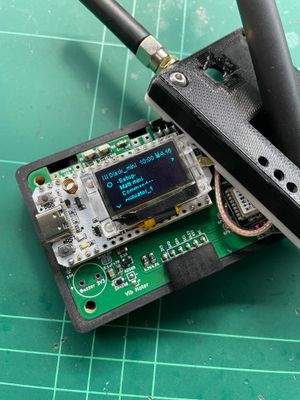If you are here, then you are likely a fellow tinkerer, electronics hobbyist or interested in DIY long range radio networks. My name is Scott Powell, and I have been gradually building up a suite of products using common off-the-shelf LoRa* components, along with the power of the Android devices.
I have named this product 'Ripple', and it lets you create your own private long-range mesh network, for simple low bandwidth applications, like text messaging and sensor data.
There are three Android apps:
Ripple Messenger - a free text messaging app, used with a companion Ripple 'pager' radio
Ripple Commander - a paid app, for the administrator of a mesh network. (Messenger works fine without and admin, btw)
Ripple Tactical - a paid app which is focused on situational awareness for a team, ie. you can see everyone's live position on a map. (also used with companion Ripple 'tactical' radios).
The LoRa devices themselves all work together in a private mesh, where all data is end-to-end encrypted. Each device/user gets a 256-bit ECC key pair (which you can regenerate whenever you like), and each app has simple ways for exchanging the public keys, either via QR codes, or over temporary symmetrically encrypted LoRa channels. (seeded with a 4-digit pass key)
The types of devices currently in use are:
Bluetooth 'pager' devices (used as a companion to the Android apps)
Dedicated repeater device (typically with solar panel, are always on, also with store-and-foreward queues for messages sent while recipient is offline or out of range)
GPS tracker devices (with modes like: geofence alerts, SOS, or silent logging of geo data over time)
General purpose sensor devices (with modular add-on sensors like temperature, motion detection, etc)
Actuator devices (can control up to 4 external devices, like LEDs, PWM servos, etc)
Standalone QWERTY Pager devices. (has a small keyboard and OLED screen, no Android required)
* Not to be confused with LoRaWAN, which is an entirely different protocol and eco-system built for TheThingsNetwork.
